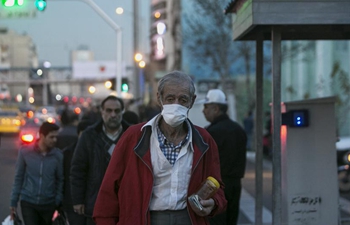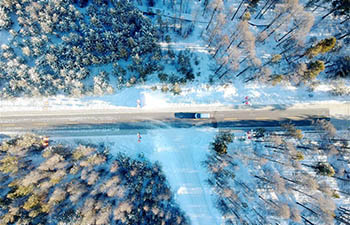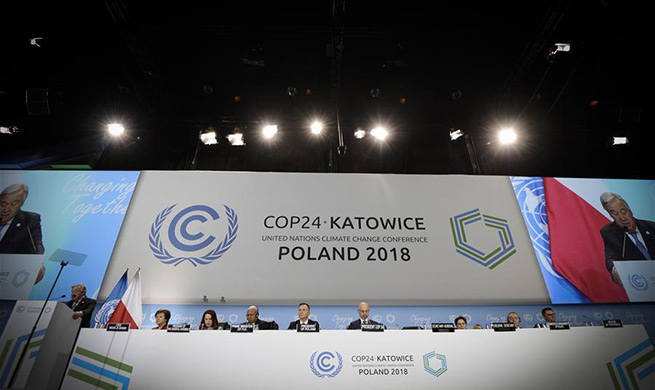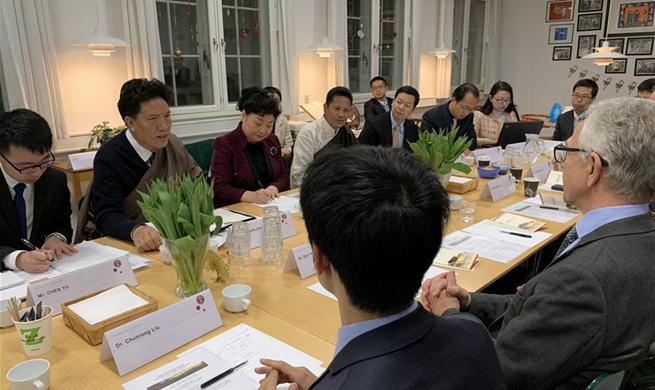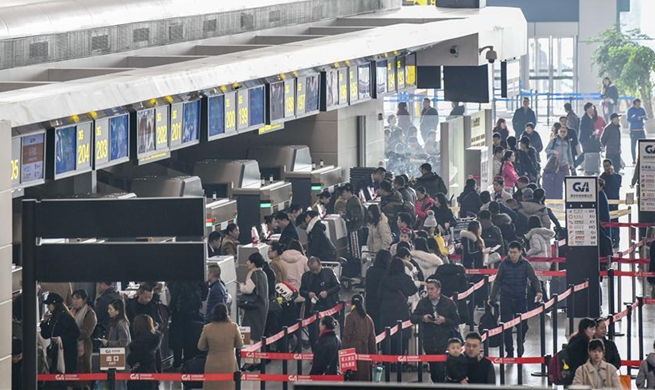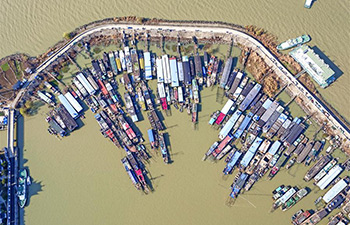by Dana Halawi
BEIRUT, Dec. 17 (Xinhua) -- Lebanese farmers had hoped for an increase in their exports after the opening of Nasib border crossing, but their hopes were dashed as Syria imposed additional fees on each container that crosses its borders.
As the only functioning crossing between Jordan and Syria, Nasib is vital for goods transport from Lebanon and Syria to Jordan and the Gulf states.
"We were very happy when we heard that Nasib border has opened. But we could not benefit yet, because we are paying an additional 1,500 U.S. dollars for each container that goes through Syrian borders," said Ibrahim Tarshishi, head of the farmers' syndicate in Bekaa.
Tarshishi told Xinhua that each truck that goes through the Syrian borders should pay 800 U.S. dollars in taxes, 300 dollars as application fee, and 300 dollars for additional weight.
He added that the containers would be examined on the borders for a long time which affect the efficiency of the export.
"Our containers take four days to reach Jordan instead of 24 hours and this is bad for our products," he said.
The border crossing was closed in 2015 when the Syrian rebels took over the Nasib area and the crossing in the countryside of Daraa province in southern Syria.
The Syrian army re-captured Daraa and the border crossing in July after the rebels in the province surrendered and agreed to evacuate to rebel-held areas in northern Syria, mainly the northwestern province of Idlib.
Jordan and Syria officially celebrated the reopening of the Nasib border on Oct. 15.
However, when it reopened, a Syrian source was quoted by media as saying that the Syrians have focused on the need for direct dialogue with Lebanese authorities on the use of Nasib border.
Antoine Howayek, head of the Lebanese Farmers' Association, told Xinhua that the increase in the cost of export is political.
"The Syrian authorities requested direct contact with the Lebanese government which did not happen and as a result, the cost has increased," said Howayek.
"Our exports went down from 530,000 tons to 350,000 tons yearly after the closure of Nasib border and I don't think we are capable of using this border again," he said.
Howayek said that farmers are resorting to maritime transport to export their products which is subsidized by the Lebanese government.
Tarshishi reiterated Howayek's remarks, saying that farmers prefer to export their produce by sea which costs less than exporting through land due to the government's subsidy.
Tarishishi said that the subsidy by the government for the export by sea will end this month.
Lebanese Prime Minister-designate Saad Hariri has previously announced that he will not initiate any direct dialogue with Syrian authorities.
Hariri, a long-time supporter of the Syrian opposition, announced earlier in August his unwillingness to visit Syria or meet with Syrian President Bashar al-Assad under any circumstances, even if that would cost him his position.
Meanwhile, caretaker Minister of Agriculture, Ghazi Zeaiter, told Xinhua that the Lebanese government should be in direct contact with Syrian authorities which is in the interest of both sides.
He added that his ministry is in contact with Syrian authorities with regard to farmers' export through the borders and he was informed that the fees imposed by the Syrians were reduced.
"Syrian authorities are being very responsive and they are facilitating our work," he said.







